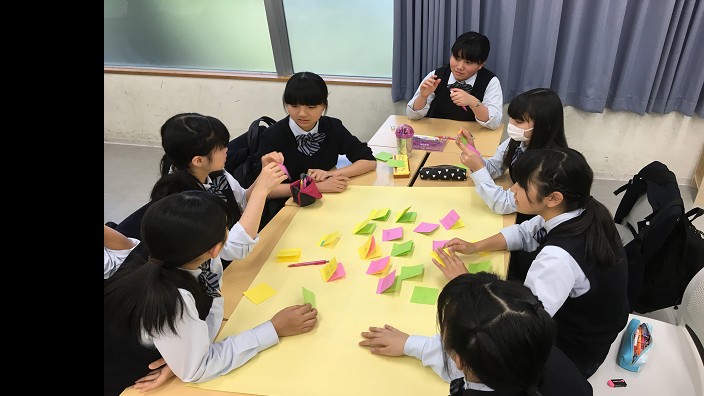中等教育で、生徒たちはいろいろな科目でさまざまな分野の知識に触れていきます。
In secondary education, students have the opportunity to encounter knowledge from a wide range of fields through various subjects.
。
No matter what kind of knowledge it is, it is always based on a particular worldview or framework, and without that background, theories or perceptions cannot be established.
。
By encountering specialized knowledge in each subject, students gradually solidify their worldview and frameworks of thinking the assumptions they take for granted, and transform them into a part of their own worldview and way of thinking.
。
In other words, the more students learn and acquire specialized knowledge, the more they become bound by the assumed values and frameworks.
。
On the other hand, as technological innovation and globalization rapidly change social structures and general perceptions, it is becoming increasingly necessary to have the ability to understand values beyond one’s own current worldview.
。
The core of philosophy lies in re-examining and contemplating the fundamentals and assumptions of things and phenomena.
。
By becoming familiar with philosophical activities, people can free themselves from their current perspectives and frameworks of thinking, and develop the ability to explore their own solid values in a rapidly changing society.
。
Therefore, at the stage of secondary education, where deeper learning begins, it is necessary to cultivate more flexible philosophical thinking skills.

